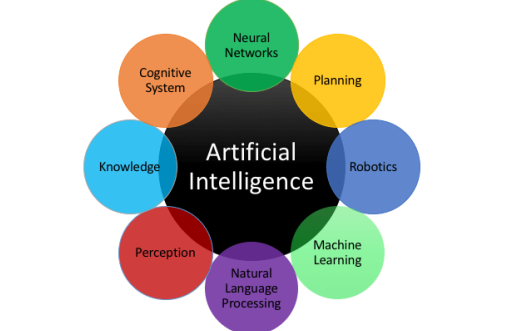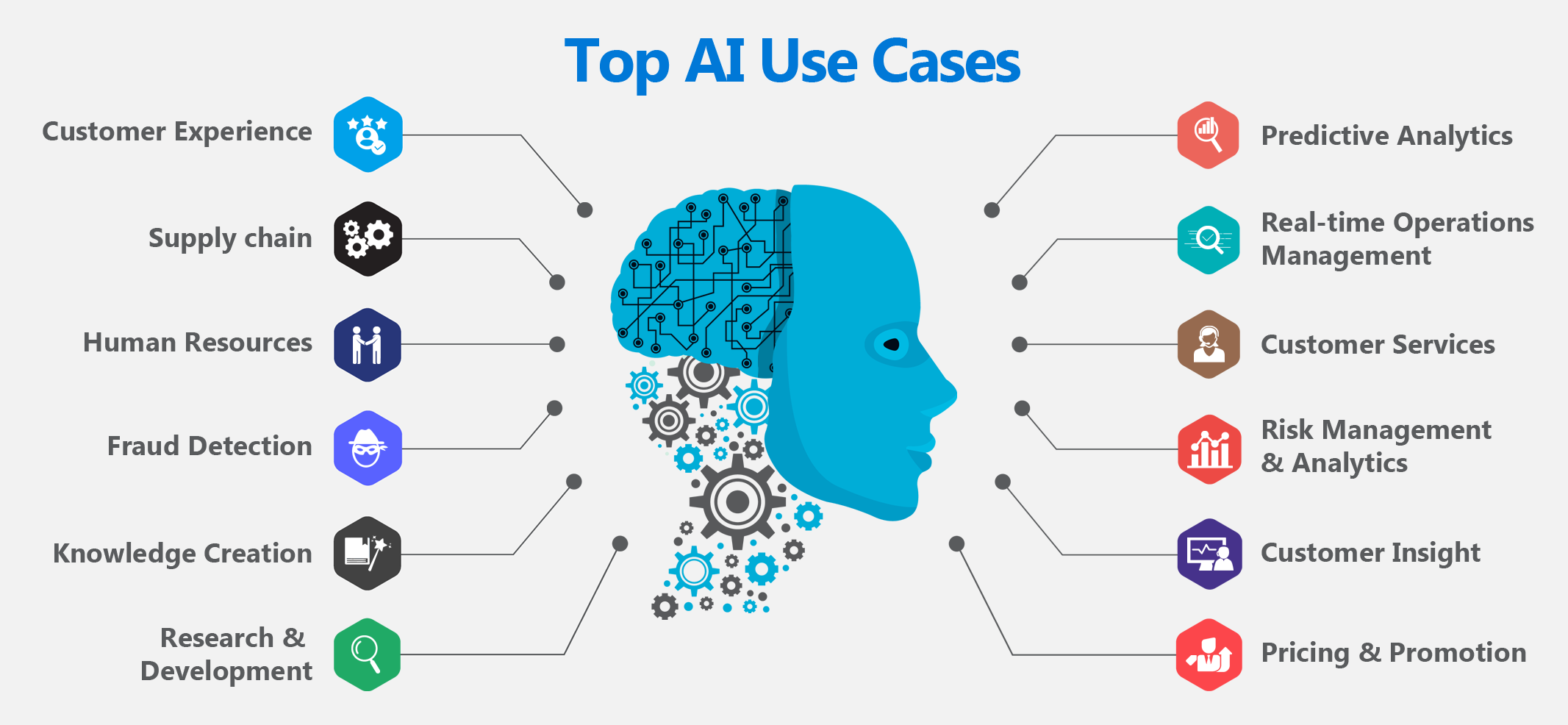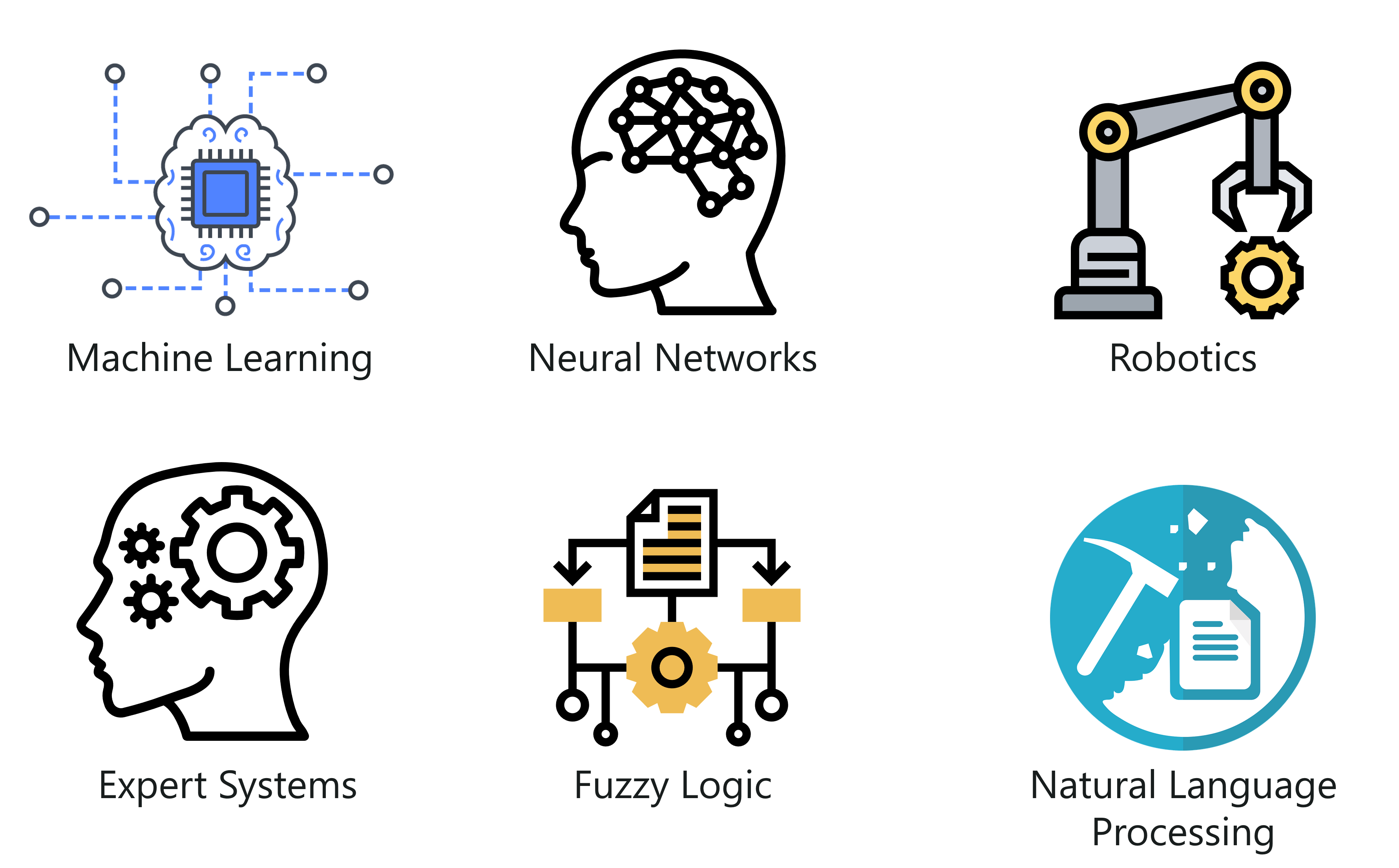For Students
Career in Artificial Intelligence
Admin Aug 09, 2022 03:30 PM

TAGS
Artificial Intelligence is undeniably one of the most popular courses among undergraduates and graduate students who wish to pursue higher-level studies such as Masters and even PhDs in order to seek a job in this sector. First and foremost, let us define Artificial Intelligence.
What is AI?

Artificial intelligence is everywhere, even in places where you might not expect it. The power of AI can be found everywhere, from music preferences to home appliances and healthcare. "Artificial intelligence (AI), commonly referred to as machine intelligence, is the simulation of human intelligence in computers that are programmed to think and act like humans. "
Artificial intelligence has advanced to bring numerous advantages in a variety of industries, including health care, retail, construction, and many more. AI has made a significant entrance in smart phones, television sets, tablets, laptops, minicomputers, and other electrical gadgets, from Voice Assistance to robots and chat bots. Aside from that, Artificial Intelligence is one of the most significant optional courses or full-time programmes for undergraduate students from a professional standpoint.
Artificial intelligence can be seen in the following examples:
- Siri and Alexa are examples of smart assistants.
- Pandora and Netflix are two services that deliver individualized music and entertainment suggestions.
- Chat bots
- Vacuum cleaners with robots
- Vehicles that drive themselves
- Software for facial recognition
Scope of AI
Artificial intelligence has a bright future, with the Bureau of Labor Statistics estimating a 31.4 percent rise in jobs for data scientists and mathematical science experts, both of which are critical to AI, by 2030.
AI also contains fascinating subfields like computer vision and machine learning, which is the process of teaching robots to perfect and enhance skills on their own. According to Forbes, machine learning occupations will be worth $31 billion by 2024, representing a 40% increase in six years.
AI also allows you to work in a range of industries and with cutting-edge technologies. Medical experts can use AI to detect and diagnose disorders. AI is used in transportation in the form of self-driving vehicles, businesses utilise AI to crunch and evaluate performance data, and manufacturers use AI to assemble equipment. Because AI is a component of so many cutting-edge, forward-thinking innovations, an AI career pays well and is future-proof.

Career Path for AI
To begin with, AI experts are in more demand, particularly in this fast-paced digital world. The first and most important step before diving into AI and wondering how to get started is to have a bachelor's degree in computer science and mathematics. In addition, a foundation in computer science, physics, engineering and robotics, learning coding languages, and other engineering courses is required.
If you're not already working in AI, the first step is to do some research, which includes speaking with current AI specialists and looking into respected institutions and programmes. It requires a bachelor's degree in math and basic computer technology (however a bachelor's degree may only qualify you for entry-level work in many circumstances). A master's degree in artificial intelligence can set you apart from other candidates. A strong foundation of knowledge and expertise in a combination of math, science, computer, and data proficiency is required for a master's degree in artificial intelligence.
As a side interest, the AI course is good for both engineering and non-engineering students. Furthermore, online courses, web-based courses, and e-books are widely available on many platforms, allowing students from any discipline to learn AI. Hardcover books are also available online and offline, with access to and purchases of books dependent on obtaining knowledge and abilities in the field of Artificial Intelligence. Nowadays, in a digitalized era, anyone can learn AI through web-based study, online courses, and paid courses on many websites where online teachers are available from anywhere in the world, including India. Books are also accessible on a variety of online platforms, including Flipkart, Amazon, and other bookselling websites.
Those interested in advancing their careers in the field can pursue master's degrees in computer science or mathematics, master's degrees in robotics engineering, and so on. A Ph.D. programme is also available for students interested in pursuing a career in Artificial Intelligence research or as Data Scientists.
Skills an AI Professional Needs
If you want to work in the field of artificial intelligence, you need to make sure you have the necessary abilities that will set you apart from other candidates and help you land the perfect job. First and foremost, calculus and linear algebra skills are critical. Also, if you're interested in AI, you should be familiar with and have experience with at least one of the programming languages listed below:
- C/C++
- Python
- MATLAB

These are some additional skills required for AI professionals:
- Ability to communicate effectively
- Python knowledge and expertise (in general, proficiency in programming language)
- Goals and strategies for digital marketing
- Collaborating effectively with others
- Analytical abilities
- A solid understanding of applied mathematics and algorithms
- Skills in problem-solving
- Knowledge of the industry
- Management and leadership abilities
- Computer-assisted learning (machine learning)
Job Opportunities for AI
Because artificial intelligence is becoming a more widely used and expanding form of technology, AI specialists are in greater demand than ever. The good news is that the AI professional area offers a wide range of job options, allowing you to take on various tasks and responsibilities based on the position, your expertise, and your interests.
Artificial Intelligence technology can be used in a variety of industries and sectors, including healthcare, automobiles, building and construction, trade industries, financial industries, corporate sectors, shipping industries, airline industries, and a variety of others. With the help of examples, this is further supported. For example, AI is widely employed in the corporate sector in the Human Resources industry, particularly in recruitment. This new technology is intended to expedite some aspects of the recruiting process, particularly repetitive, high-volume operations like resume screening and candidate pre-qualification. As a result, for Management students interested in pursuing a career in Human Resources, taking AI courses during their post-graduation will be beneficial.
The construction industry is another good example. The construction industry is on the verge of digitization, which will disrupt digital operations while also presenting numerous opportunities. From the production of building materials to the design, planning, and construction phases, AI is projected to improve efficiency across the whole value chain.
Furthermore, Artificial Intelligence applications in security systems are continually developing. For example, Honeywell, a multinational conglomerate, is attempting to develop integrated security systems that give earlier detection, allowing end-users to go beyond surface-level monitoring to determine who is in the area and what they may be doing.
Some popular jobs in the field of Artificial Intelligence are:
Data scientists- A data scientist gathers, analyses, and interprets data from a variety of sources in order to better understand how businesses operate and develop AI solutions. A data scientist must possess the necessary qualifications (Preferably a master’s degree) in mathematics and computer science. Furthermore, knowledge of several coding languages such as SQL, excreta, Perl, Python, and the use of big data platforms and applications is required.
Robotics scientists- A robotic scientist is a person with a formal education in computer science or engineering who creates mechanical devices that execute tasks that humans do. A master's degree in computer science, robotics, or engineering is required. A robotics scientist's median income is relatively high. Despite the fact that robots prefer automation, they should be built by professionals. As a result, the chance of losing a job is reduced.
Machine Learning Engineer- Machine learning engineers are responsible for developing and maintaining self-running software that aids in the implementation of machine learning projects. Companies are always looking for them, and their positions are rarely empty. They work with large amounts of data and have exceptional data management skills. They specialize in picture and speech recognition, customer analytics, fraud protection, and risk management. To work as a machine learning engineer, you must have a strong understanding of how to apply predictive models to large amounts of data. To be a successful machine learning engineer, you'll need to know how to programme, compute, and do arithmetic. It is preferable to have a master's degree in mathematics or computer science. The required technological stacks are Python, Scala, R, and Java. It is extremely beneficial to have a thorough understanding of machine learning techniques, neural networks, and deep learning.
Research Scientists- Research scientists work hard to do substantial research on machine learning and artificial intelligence applications. A research scientist is a person who has studied statistics, applied mathematics, deep learning, and machine learning.A PhD or advanced master's degree in computer science or mathematics is required to become a research scientist. A research scientist's compensation is extremely expensive, and firms prefer to hire people with prior AI experience. While applying for the position, extensive expertise of Reinforcement Learning and Natural Language Processing (NLP) and is required.
Big Data Engineer- A Big Data Engineer's job is to build a solution that allows business systems to communicate effectively. Their main responsibility is to create and manage an organization's big data successfully. They also perform the task of extracting reliable results from huge data. The position is ideal for those who want to experiment with new technical tools and are willing to think outside of the box when it comes to relational databases. Those with a PhD in Computer Science or Mathematics are given a leg up.
AI Data Analyst- An AI data analyst's main responsibilities include data mining, data cleansing, and data interpretation. They delete any unnecessary data so that the data interpretation process is not hampered. An AI data analyst draws inferences from the data with the use of statistical tools and procedures. A bachelor's degree in computer science or mathematics is required to work as an AI data analyst. To be considered for this role, you must have a thorough understanding of regression and be able to use MS Excel.
Product Manager- A product manager's job in the realm of AI is to tackle difficult challenges by systematically collecting data. You should be capable of detecting pertinent issues that inhibit business operations. To make data interpretation easier, the next step is to obtain similar data sets. The product manager must estimate business impacts from the data interpretation results after it has been interpreted. Every company needs a product manager, whose demand has risen dramatically in recent years.
AI Engineer- Artificial Intelligence engineers are problem solvers who create, test, and implement various AI models. They manage AI infrastructure efficiently. In order to construct viable AI models, they use machine learning techniques and a thorough understanding of neural networks.
These models can provide business insights, allowing a corporation to make more informed decisions. Data science, computer science, or statistics degrees are required at the undergraduate or postgraduate level. Certifications in machine learning or data science are a plus. Programming skills in Python, R, and C++ are required. Applicants should be well-versed in statistics, natural language processing (NLP), applied mathematics, and data analytics.
Business Intelligence Developer- A Business Intelligence Developer's key task is to identify various business trends by analysing large data sets. They assist in increasing a company's earnings by preparing, developing, and nurturing business intelligence solutions. They address two important variables in development: business profitability and efficiency. They also aid in the optimization of various processes and workflows throughout the firm. Their expectations have risen in recent months as a result of their ability to cope with complex data on cloud-based platforms. This position is open to anyone who is familiar with computer programming and data sets. A formal bachelor's degree in computer science, mathematics, or engineering can help you get work. The applicants' problem-solving skills and analytical talents should be excellent. This professional path necessitates a thorough understanding of SQL servers and queries, as well as data warehouse design. The job pays well, and the demand for it isn't going away anytime soon. As a result, it's one of the most promising AI careers.
To summarise, Artificial Intelligence will soon supplant human labour and seize the lead. However, with all of the improvement in other parts of the economy, it is conceivable that new sorts of jobs will be created as well. As a result, we must begin identifying high-quality undergraduates in universities by holding career advising sessions and advanced training programmes in the field of Artificial Intelligence.
Search
Latest Blogs

Exploring Opportunities in Emerging Engineering field
Admin
Dec 14, 2024 05:18 PM

Navigating College Majors
Admin
Sep 25, 2024 04:04 PM

Tools for Measuring Strengths For Career
Admin
Sep 25, 2024 03:27 PM
Interested in getting latest updates?
SUBSCRIBE


















